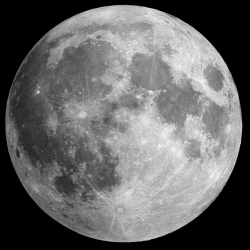
With the moon as its goal, NASA is pushing hard on deep space exploration. In a press conference from Johnson Space Center, NASA officials talked through the status of their deep space exploration program and the upcoming launches of the agency’s Orion spacecraft around the moon. A NASA report last year suggested the launch date could slip to June 2020.
However, JSC Director Ellen Ochoa confirmed that NASA is still pushing to use the massive Space Launch System to send Orion around the moon for the first time, on the uncrewed Exploration Mission-1, by the end of 2019.
"Launch [is] hopefully at the end of 2019. That is the goal we’re keeping toward," Ochoa said at the press conference. "We’ve done an in-depth assessment of that, and likely it will be in early 2020, but we are keeping pressure on our agency and our folks to try and launch in December of 2019, to make sure that we put our best foot forward and do our best to meet those deadlines."
EM-1, the spacecraft for that first test flight, is already being assembled at Kennedy Space Center in Florida, Ochoa said, and awaiting the European Service Module, which should arrive at the center this summer. (That module will sit below the Orion spacecraft, with the abort system attached above.)
In the meantime, EM-2 — the spacecraft for the second Orion flight, and Orion’s first crewed mission around the moon — is already being assembled at the Michoud Assembly Facility in Louisiana. It will make its way to Florida later in the summer.
Before EM-1 — almost exactly a year from today, Ochoa said — NASA will test the spacecraft’s abort system after a launch to a point more than 6 miles (9.7 kilometers) high in a short, but intensive test called Ascent Abort-2.
"It’s just a 3-minute test, but it will be an exciting 3 minutes," Ochoa said.
Once Orion has reached the moon, NASA plans to spend a significant amount of time there honing systems and creating an orbiting outpost called the Deep Space Gateway, according to Vanessa Wyche, director of the Exploration Integration and Science Directorate at NASA.
